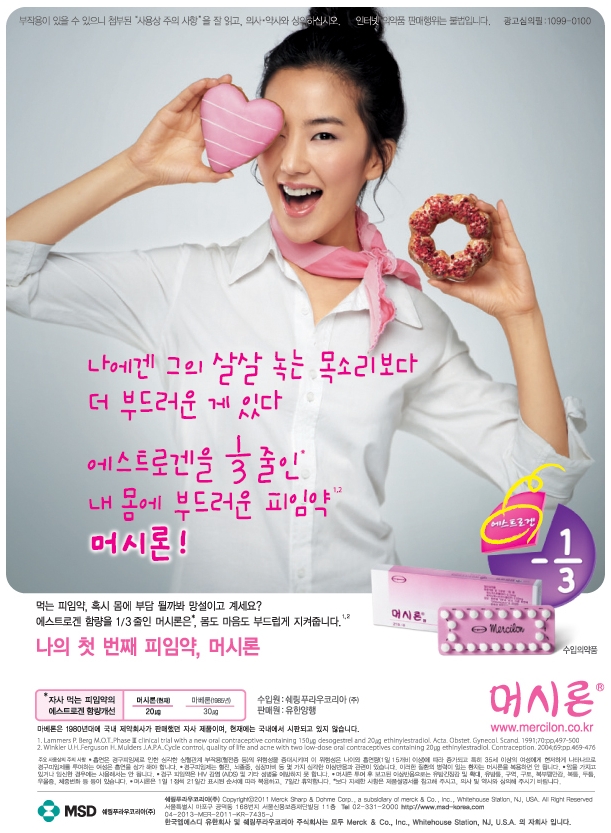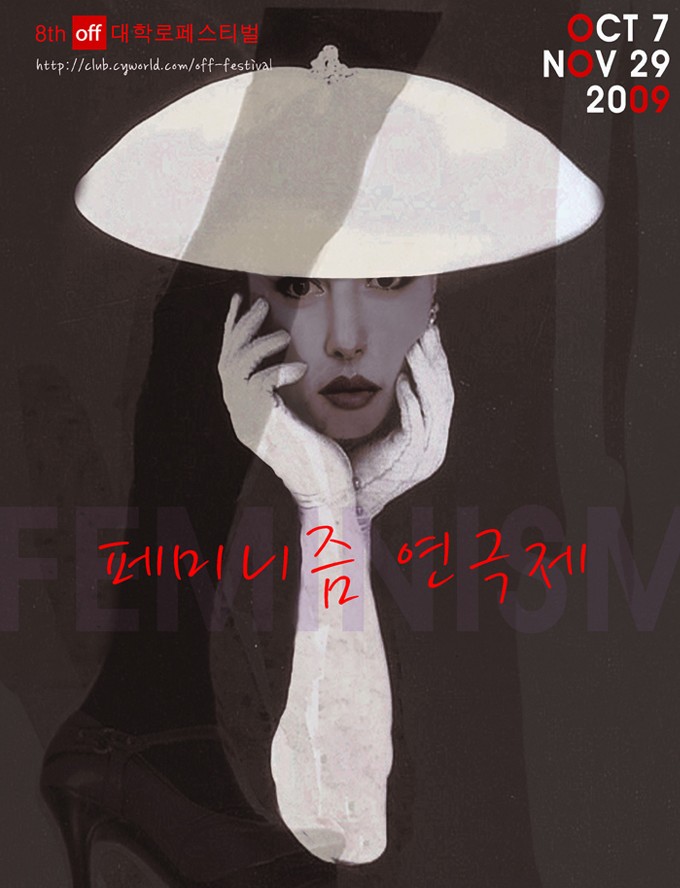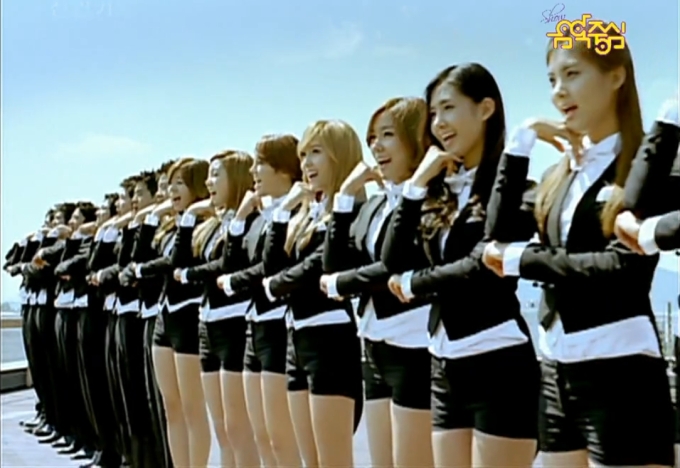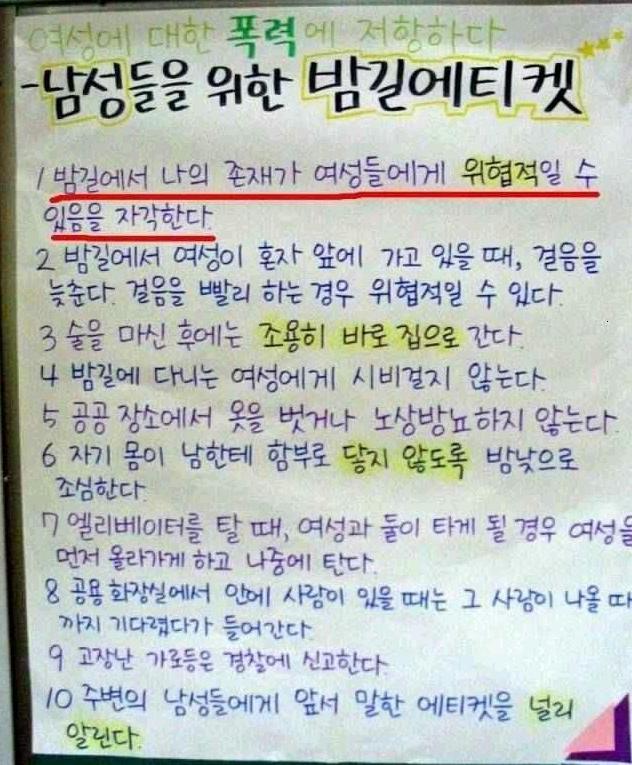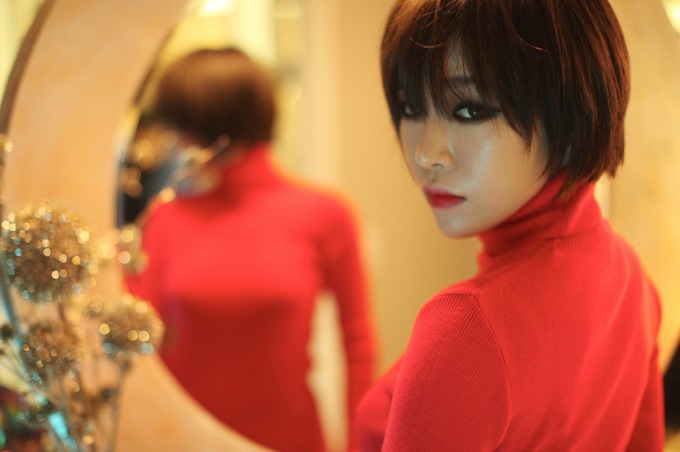Ga-in shared, “Our previous MVs had received R-ratings and we didn’t understand the reason why. So for my recent MV, I decided to give them one.”
And to help, she watched adult videos from many different countries, finding “that the porn from third world countries fit the most with [her] personal tastes.” Accordingly, Bloom (피어나) has many bed scenes, and — yes really — features her masturbating on her kitchen floor.
In contrast, Miss A‘s (미쓰에이) I Don’t Need a Man (남자 없이 잘 살아) speaks for itself, and the video is so family-friendly that my daughters (demand to) dance to it several times a day.* So to many, it might seem like a much more appropriate, softly-softly feminist anthem for “sexually conservative” Korea. Not least, by those who think the pornification of the media has already gone far enough, and/or that imitating porn stars isn’t something that should be celebrated.
To the latter, I would suggest that they actually take a look at the music video. Because while it is certainly erotic, it is by no means mere sexual titillation masquerading as art, nor is it provided exclusively for the male gaze. On the contrary, as Dana D’Amelio explains in a must-read at Seoulbeats (see this follow-up also):
Essentially, what Ga-in does is take female sexual desire, wrest it from the men who have manipulated it to their own device, and put it back in female hands. Ga-in’s sexuality is something that women can get behind, and that’s something you can’t much say for the rest of K-pop; that she herself is portrayed as taking pleasure as much as she is giving it is unique, fresh, and deeply relatable to female viewers.
Dana and fellow Seoulbeats writer Mark both compare Bloom to Kim Hyuna’s (김현아) Ice Cream (아이스크림), which is just as sexually-explicit as Bloom, but strangely wasn’t banned by the Ministry of Gender Equality and Family. Arguably, precisely because it did conform to the male gaze and pervasive double-standards of K-pop.
In light of those, the sooner songs like Bloom rock the K-pop boat, the better. And for that reason, I’m going to wager that Bloom will have much more longevity than not just (frankly) vacuous songs like Ice Cream, but also, as explained below, those ostensibly empowering ones like I Don’t Need a Man that actually seem to be about nothing but men. Yet which, unfortunately, now seem to be the dominant from in pop music worldwide:
Lucy O’Brien, author of She-Bop: The Definitive History of Women in Rock, Pop and Soul, thinks the continuing importance of image and presentation is to blame. The key thing that ossified gender roles, she suggests, was MTV, which changed popular culture, leaving feminist punk bands such as the Slits and the Raincoats behind. “Image became the big thing, and angry women who didn’t care about it didn’t really fit that picture,” O’Brien says. There was a brief window of opportunity for women who didn’t fit the MTV template in the early 1990s, she suggests, a time when bestselling artists such as Sinead O’Connor ripped up pictures of the Pope on TV, and Tori Amos sang about her experiences of rape (though, equally, O’Connor’s greatest success came with her most MTV-friendly moment, Nothing Compares 2 U). But then came the Spice Girls, appropriating the vocabulary of riot grrrl, and proclaiming “Girl Power”, but within the conventional model of the pop group manufactured by men for young girls. “Everything became sophisticated and sanitised after that, and the industry has never got over it,” O’Brien says.
Which brings me to today’s translation, found via Lost in Traffic Lights. Here’s her summary of it (emphasis in original):
…the main difference is…while Bloom talks about how a woman views herself, free from social constructs and how people view her. However, while Miss A’s “I don’t need a man” looks like it’s gunning for female empowerment, at the end it’s still feeding into a discourse that men made for a “good girl” or a “sensible woman” in Korea.
I see this a lot actually. On the internet, there’s always a guy-or a male figure-who argues that “all women do is buy luxury bags and leech off men blah blah blah” and the women are like “but we don’t. A lot of us don’t. I am special because I’m not like those other girls. I don’t buy luxury bags, I pay for my own stuff” and so on. But at the end of the day though, isn’t that gunning for another gold star from the men who criticize us?
For much more on that theme, see Nabeela’s review of the song (and especially the comments), and — for starters! — here, here, here, here, here, here, and here for more information about the “beanpaste girl” (된장녀/dwenjang nyeo) and “ladygate” discourses being referred to.
As for the translation, frankly I and my long-suffering wife found it exhausting, and there were many parts we found difficult — we apologize in advance for any mistakes. Also, there’s much to query in both the author’s generalizations and his details, starting with the confusion in the first part as to whether he’s talking about the music video (far above) or a stage performance (e.g. below, on SBS a few days before the article was published), and indeed I can’t find the part where she supposedly pretends to look into a mirror in either. But these don’t detract from the author’s main points, and I hope you all agree that comparing Bloom and I Don’t Need a Man is very valuable and worthwhile.
가인이 피워낸 100%짜리 여자의 욕망 / 100% Women’s Desire Blooms With Ga-in
Naver News, October 17 2012; 강명석 칼럼 / Column by Gang Myeong-seog (two@10asia.co.kr; Twitter).
붉은빛 스웨터를 입는다. 다리에는 가터벨트를 착용한다. 혀 끝으로 입술을 핥는다. 가슴을 내민다. 의자에 앉은 채 허리를 뒤로 젖힌다. 손이 온 몸을 훑는다. 가인의 신곡 ‘피어나’의 무대는 남성들에게 온갖 야한 상상을 불러일으킨다. 그러나, 정작 무대 위의 남성 댄서들은 무표정하다. 그들은 로봇처럼 동작을 소화할 뿐 가인의 춤에 반응하지 않는다. 가인은 그들과 한 번도 정면으로 눈을 맞추지 않는다.
She wears a red sweater. On her legs she has a garter belt. She licks her lips with the tip of her tongue. She sticks her breasts out. She arches her back while sitting in a chair. She touches her whole body with her hands.
Ga-in’s new song “Bloom” provokes all sorts of bawdy male fantasies. But those men actually on the stage with her are expressionless, behaving like robots that don’t even notice her dance. She, in turn, never looks any of them in the eye.
대신 가인의 시선은 무대 정면을 향한다. 정면을 바라본 채, 가인은 다양한 포즈들을 취한다. ‘피어나’의 안무는 동작과 동작을 하나의 흐름으로 연결하지 않는다. 대신 섹시한 느낌을 주는 각각의 포즈들을 취할 수 있도록 구성됐다. 댄서들이 사라지고, 가인 혼자 정면을 바라보며 여러 포즈를 취하는 무대 후반의 구성은 가인의 시선이 누굴 향한 것인지 짐작케 한다. 남자들이 사라져도, 가인은 자신의 섹시함을 표현하는 것을 멈추지 않는다. 마치 거울 앞에 선 자신을 보는 것처럼.
Rather, Ga-in looks directly at us, while adopting various poses. In “Bloom,” the choreography isn’t seamless. Instead, each scene is defined by and constructed around a different pose, each providing a very sexy, sensual feeling.
Later in the performance, in which Ga-on looks ahead while continuing to do various poses, making people wonder who she is actually looking at. Then, the dancers disappear again, but Ga-in doesn’t stop expressing her sexiness. She continues as if she’s looking at herself in the mirror.
![Bloom vs. I Don't Need a Man Caption 1]()
Caption: 가인은 남자들의 판타지를 자극하는 방식의 ‘피어나’를 통해 오히려 가장 주체적인 여성상을 그려낸다 / Rather than stimulate male fantasies, Ga-in provides a very independent symbol for women in “Bloom.”
가인, 타인이 아닌 나를 위한 섹시 / Ga-in: The Sexiness is For Me, Not For Others
거의 모든 여성 가수에게 섹시한 댄스는 타인의 시선을 끌기 위한 장치다. 걸그룹이 곡에서 악센트를 줘야할 부분마다 다리를 벌리는 춤을 추곤 하는 것이 그 예다. 섹시함이 콘셉트 그 자체라 해도 좋을 ‘피어나’도 당연히 시선을 끈다. 그러나, ‘피어나’는 특정 동작을 강조하며 시선을 끄는 포인트 춤이 없다. 대신 모델이 계속 포즈를 취하는 듯한 동작들이 이어진다.
Almost all female use a sex dance as a means to attract people’s attention. For example, girl-groups will often emphasize spreading their legs apart in their dance routines. Naturally, “Bloom” could also be seen in this vein. However, “Bloom” doesn’t have ‘point dances’ which are only used for the specific purpose of getting people’s attention; instead, the poses adopted are more similar to the ones real models use.
가인의 소속사 로엔엔터테인먼트 관계자에 따르면 ‘피어나’의 안무에도 원래 포인트 춤이 포함돼 있었지만, 그 포인트를 빼고 지금처럼 다양한 포즈 중심의 안무를 요구한 사람이 바로 가인이었다. 그 결과 ‘피어나’의 안무는 타인에게 어필하는 것이기도 하지만, 그 이전에 여성이 섹시한 표정과 포즈를 마음껏 해보는 구성이 됐다. 또한 ‘피어나’의 뮤직비디오는 황수아 감독이, 가사는 작사가 김이나가 맡았다. 두 여성은 그들의 시선에서 섹시함을 표현한다. 뮤직비디오에 가인의 베드신이 등장하지만, 가인과 관계를 갖는 남자의 얼굴도 제대로 안 나온다. 대신 카메라는 희열을 느끼는 가인의 표정을 잡는다. <김이나의 가사로 표현한다면, 남자는 ‘내가 선택한’ 존재고, 그가 사랑스러운 것은 나를 ‘high’하고 ‘fly’하도록 만들었기 때문이다. 남자가 어떤 매력을 가졌는지는 묘사하지 않는다. 중요한 것은 남성이든 섹시함이든 여성 자신의 욕망이 선택한 결과라는 점이다.
According to a representative of Loen Entertainment, originally the choreography did have point dances, but these were removed and replaced at Ga-in’s insistence. As a result, the choreography appeals not just to other people [men?], but has as many sexual poses and expressions as it could have too [James - That sentence sounds strange in Korean also]. Also, the director of the music video, Hwang Su-ah, and lyricist, Kim Ee-na [both women], express sexiness from their own perspectives. In the music there is Ga-in’s bed scene, but we can’t really see the face of the guy she’s with [James - The screenshot below would be the closest you get]. Instead the camera focuses on her expression of joy and ecstasy. According to Kim Ee-na’s lyrics, “This is the guy I chose,” and the reason is because he makes Ga-in “fly high.” Crucially, why she finds the man attractive is not described; rather, the important thing is that it’s her sexual desire that is paramount here.
전체적인 윤곽은 남성의 판타지를 충족시키지만, 그 디테일은 섹시함이 ‘(타인의)시선 따윈 알게 뭐니’라고 노래하는 여성의 욕망을 드러낸다. 이 절묘한 공존은 이 곡의 구성원들의 독특한 조합 때문일 것이다. 안무, 가사, 뮤직비디오는 여성이 주축이지만, 프로듀싱과 작곡은 각각 남성인 프로듀서 조영철과 작곡가 이민수가 맡았다. 이들 중 가인을 제외한 네 명의 남녀는 아이유와 브라운 아이드 걸스를 제작한 바 있다. 아이유는 귀여운 여성에 대한 남성 판타지의 극단이었고, 브라운 아이드 걸스는 섹시함에 터프함을 가미한 강한 여자들이었다.
While the whole character of this song fulfills men’s fantasies, contained in the details is a depiction of sexiness and women’s desire that poses the question, “Who cares about the gaze of others?”. This exquisite coexistence is the result of the unique combination of the people involved in its production: the choreographer and lyricist are women, but the producer, Jo Yeong-cheol, and the composer, Lee Min-su, are men [James - What happened to the director Hwang Sun-ah?]. Moreover, in addition to Ga-in’s songs, these men and women have produced songs for the IU and the Brown Eyed Girls. IU projects a cute image that is an extreme men’s fantasy [James - Actually, this cute image is exaggerated and/or very outdated], while the Brown Eyed Girls’ image is a mixture of tough and strong women.
가인은 이 네 남녀의 정확한 한가운데다. 남성들에게 확실히 어필할 수 있는 섹시한 콘셉트는 남성 스태프가 짠 틀일 것이다. 그러나 여성 스태프는 그들의 시선으로 섹시함을 표현했다. 여성도 성관계에서 오는 육체적, 정신적 쾌감에 대한 욕망이 있고, 그 욕망을 드러내자 가인은 가련한 소녀도, 남성의 시각적 만족만을 위한 쇼걸도 아닌 무대를 지배하는 주인공이 된다. ‘피어나’는 주체적인 여성에 대한 시각을 무엇을 보여주느냐가 아니라 어떻게 보여주느냐로, 바깥의 시선에서 내면의 욕망의 문제로 옮긴다.
Ga-in is positioned firmly in the center of these 4 men and women. Her sex appeal, which definitely appeals to men, would have come from the male staff; the women’s perspective on sexiness, from the female staff. Women too, find sexual relationships physically and mentally pleasurable, and here Ga-in owns the stage with that desire, rather than being turned into a miserable girl or a showgirl for the male gaze for it.
“Bloom” moves the question of what are independent women from not what they show, but how they show it. Or in other words, from outside appearances to inner perspectives.
미스에이, 타인이 만들어놓은 좋은 여자의 기준 / Miss A Conform to the Standards of Good Women Defined by Others
그래서, 미스에이의 ‘남자 없이 잘 살아’가 ‘피어나’와 완벽한 대비를 이루는 것은 흥미롭다. 박진영이 작사한 ‘남자 없이 잘 살아’의 여성은 ‘내 돈으로 방세 다 내’고, ‘내 차 내 옷 내가 벌어서 산’다. ‘남자 믿고 놀다 남자 떠나면 어떡할’거냐는 걱정을 하기 때문이다. 가사만 보면 ‘남자 없이 잘 살아’는 주체적이고 독립적인 여성을 칭송하는 것처럼 보인다. 그러나 남에게 폐 끼치지 않는 인생은 남자 역시 필요하다.
So, “Bloom” and “I Don’t Need a Man” provide a perfect, very interesting contrast. The lyrics to “I Don’t Need a Man”, written by JYP, say “I pay the rent with my own money,” “I bough this car and these clothes with my my own money,” and that “If you trust and fool around with a man and then he leaves, what will you do?”, which is a constant worry of women.
If you only look at the lyrics to the song, they do praise self-reliant and independent women. [Although] men, too, need a way of life that isn’t dependent on others.
Caption: 반면 ‘남자 없이 못 살아’를 발표한 미스에이는 타인의 시선에 의해 결정되는 여성의 단면을 보여준다 / On the other hand, with “I Don’t Need a Man,” released by Miss A, they show a side of women defined by others
그리고, 이런 경제생활이 당당한 여성의 기준은 타인의 시선이다. ‘남자없이 잘 살아’의 뮤직비디오에서 멤버들이 콧수염을 붙여보거나, 이두박근을 강조하는 것은 우연이 아니다. 미스에이가 노래하는 독립적인 여성은 사실상 남성들이 요즘 ‘개념녀’라고 말하는 이상적인 여성이다. ‘피어나’가 남성들에게 어필하는 코드로 여성의 욕망을 말한다면, ‘남자 없이 잘 살아’는 당당한 여성을 어필하면서 ‘된장녀’와는 정반대인 ‘개념녀’라는 남성의 욕망을 말한다.
Also, these financially confident women are conforming to the standards of others. In “I Don’t Need a Man,” it is no accident that the members of Miss A stick on a fake mustache or emphasize their biceps. The independent women that they are singing about are actually the gaenyeomnyeo, or “good girls,” that men say are their perfect women these days.
While “Bloom” appeals to men while also articulating female desire, “I Don’t Need a Man” provides an image of confident women and also the good girl image that males desire, an opposite of the dwenjang-nyeo, or “bean-paste girl” one.
![miss_a_i_don__t_need_a_man_chibi_by_jinsuke04-d5il0nc]() (“miss A I Don’t Need A Man Chibiby,” by jinsuke04)
(“miss A I Don’t Need A Man Chibiby,” by jinsuke04)
‘피어나’는 타인의 시선 대신 내면의 욕망을 더 적극적으로 드러내는 여성의 목소리를 반영하고, ‘남자 없이 못 살아’는 남자, 또는 사회가 원하는 좋은 여성의 기준을 더욱 더 강화한다. 출산과 결혼을 선택하지 않는 여성에 대한 논의가 사회적 화두로 떠오르고, 인터넷에서는 남녀가 수많은 문제들로 논쟁을 하는 이 시점에서 두 곡의 등장은 어떤 징후처럼 보인다. 많은 남자들은 명품 백을 사느냐 마느냐에 따라, 결혼할 생각이 있느냐 없느냐에 따라 ‘개념녀’와 그렇지 않은 여성을 가른다.
Rather than emphasizing the male gaze, “Bloom” reflects more the inner desires and voices of women, whereas “I Don’t Need a Man” does more men and/or society’s standards for women. These two songs are a reflection of how many women choosing not to get married and/or have children has become a hot topic of debate in Korean society, and of the discussion, arguments, and problems as many men and women discuss that on the internet. In which many men are dividing women into good girls or beanpaste girls, or who want to get married or not, [simply] according to whether they buy brand-name bags or not.
반면 많은 여성들은 타인에게 폐 끼치지 않는 한 돈을 쓰고 싶은 곳에 욕먹지 않고 쓸 권리와 결혼과 출산을 하지 않을 자유에 대해 말한다. 주체적인 욕망과 타인의 시선이 정한 기준 안에 들어오는 것 사이의 대립. 남녀 모두 주체적인 여자에 대해 말하는 것 같지만, 그 층위는 전혀 다르다. ‘피어나’가 예상치 못했던 카운터펀치인 이유다. 인터넷에서 끝없이 반복되던 남녀의 가장 중요한 논쟁점이 흥미로운 방식으로 수면 위로 떠올랐다. 그것도 모두가 답 없는 논쟁을 할 때, 여성의 욕망을 놀라울 만큼 잘 드러내면서 남성도 즐길 수 있는 판타지의 접점을 만들면서 말이다.
But as long as women do not trouble others with their spending choices, then they have a right not to be sworn at and criticized by others, and the freedom not to choose marriage or children. [However], there is a contradiction between the desire for self-reliance and the standards set by the male gaze. Men are women are talking about the same self-reliant women, but the amount of what they say about them are totally different.
This is the reason why “Bloom” has a surprising counter-punch. The most important thing men and women are unceasingly arguing about on the internet [James - What is that?? Sex?] arose in an interesting and amusing way. That is, in an argument which has no answers, this song provides a rare point of contact in which women can enjoy their desires just as much as men have their fantasies fulfilled.
강하거나, 세거나, 독특한 여성 걸그룹들의 노래들이 하나의 흐름을 형성한 지금, ‘피어나’가 대중음악 시장에서 얻는 반응은 지금 이런 목소리에 대한 수요를 알 수 있는 척도가 될 수도 있을 것이다. 그것은 반대로 ‘남자없이 잘 살아’에 대한 반응도 마찬가지일 것이다. 지금 우리는 주류 대중음악, 또는 걸그룹으로 대표되는 아이돌 시장에서 여성을 표현하는 방식이 아주 조금은 달라진 순간을 보고 있다. 그게 결과적으로 누구의 목소리가 더 크게 멤돌지는 알 수 없지만 말이다.
Now, bold, strong, and unique girl-groups are forming a new trend, and how well “Bloom” does commercially will demonstrate how much of a demand there is for this new voice. The same goes for “I Don’t Need a Man.” Now, in popular music, we are seeing the beginning of a new phase in the way women express themselves. Ultimately, whose voice will be loudest? (end)
*Truth be told, I let my daughters watch Bloom as well, which isn’t that explicit really; they really like the song and colors, and at 4 and 6, they’re much too young to understand what’s really going on anyway. And I hope that their happy childhood memories of it spur a renewed interest in it much later, just like mine of She-Bop (1984) did for me!
Update: While I’m at it, see here for 10 more songs about female masturbation.
Related Post(s):
![]()
Filed under:
Censorship,
Gender Roles,
Gender Socialization,
Girl Groups,
Korean Female Singers,
Korean Media,
Korean Music,
Korean Sexuality Tagged:
Bloom,
Brown Eyed Girls,
미쓰에이,
가인,
브라운아이드걸스,
Ga-in,
피어나,
Miss A ![]()
![]()
![]()
![]()
![]()
![]()
![]()
![]()
![Objectification Korean Men]() (Sources — left: unknown; right)
(Sources — left: unknown; right)


